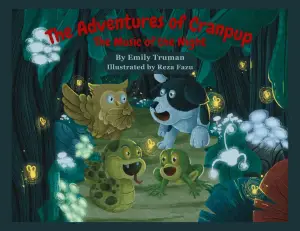I recently finished reading The Memory Police by Yōko Ogawa, and it has left quite an impression on me. Being a fan of dystopian fiction, I was drawn to this haunting tale after hearing about its finalist status for the International Booker Prize. The premise of a world where objects gradually disappear from both memory and existence felt both intriguing and unsettling, and I wanted to explore how Ogawa would weave such a poignant narrative.
The story unfolds on an unnamed island where the Memory Police enforce the suppression of memories associated with physical objects that have been deemed unnecessary or even dangerous. As the narrative progresses, we follow a young writer who risks everything to protect her editor, who is at risk of being taken by the oppressive Memory Police. Engaging with this tale prompted me to reflect on the significance of memory and identity in our lives, and how easily they can be manipulated.
One of the strengths of The Memory Police is Ogawa’s poetic prose that creates a dream-like atmosphere. E. Denise Billups captures this perfectly in her review, describing the blend of dystopian fiction, science fiction, and magical realism as "beautifully written." Despite the grotesque implications of its themes, I found the lyrical style captivating, wrapping me in the story’s emotional core.
The exploration of memory as a fragile anchor to personal identity resonated with me deeply. The protagonist’s struggle against societal amnesia presents a powerful metaphor for our own relationship with memory and loss. However, some readers have noted that the pacing is slow, and I experienced this myself. Occasionally, I felt like the narrative drifted a bit, making it a hard read, especially in today’s climate, as Laurel pointed out. The contemplative pace amplified the tension of living under an authoritarian regime, but it could deter readers seeking a more fast-paced storyline.
Moreover, while the nuanced characters, especially the relationship between the protagonist and her editor, added depth to the novel, some parts lacked emotional specificity. Kevin L. Nenstiel highlights the vagueness of names and settings, which I found both compelling and frustrating. It makes the story feel universal and detached, yet at times, I yearned for more grounding details.
Despite its slower moments, Ogawa’s storytelling managed to keep me engaged. The book left me pondering profound questions about the nature of existence, reminding me of the fragility of memories and how easily they can be erased. It is a narrative that lingers long after you’ve closed the book, relevant in an age where state surveillance and censorship are all too real.
Overall, I would rate The Memory Police a solid 4 out of 5 stars. It successfully captivates with its haunting beauty and philosophical depth, making me reflect on identity and loss. While its slow pacing and lack of concrete detail might be off-putting for some readers, those who appreciate thoughtful, lyrical narratives will find it rewarding. If you’re intrigued by dystopian themes wrapped in poetic expression, I highly recommend giving this book a chance. It’s a poignant read for our times, and it certainly met my expectations, prompting introspection long after I turned the last page.








